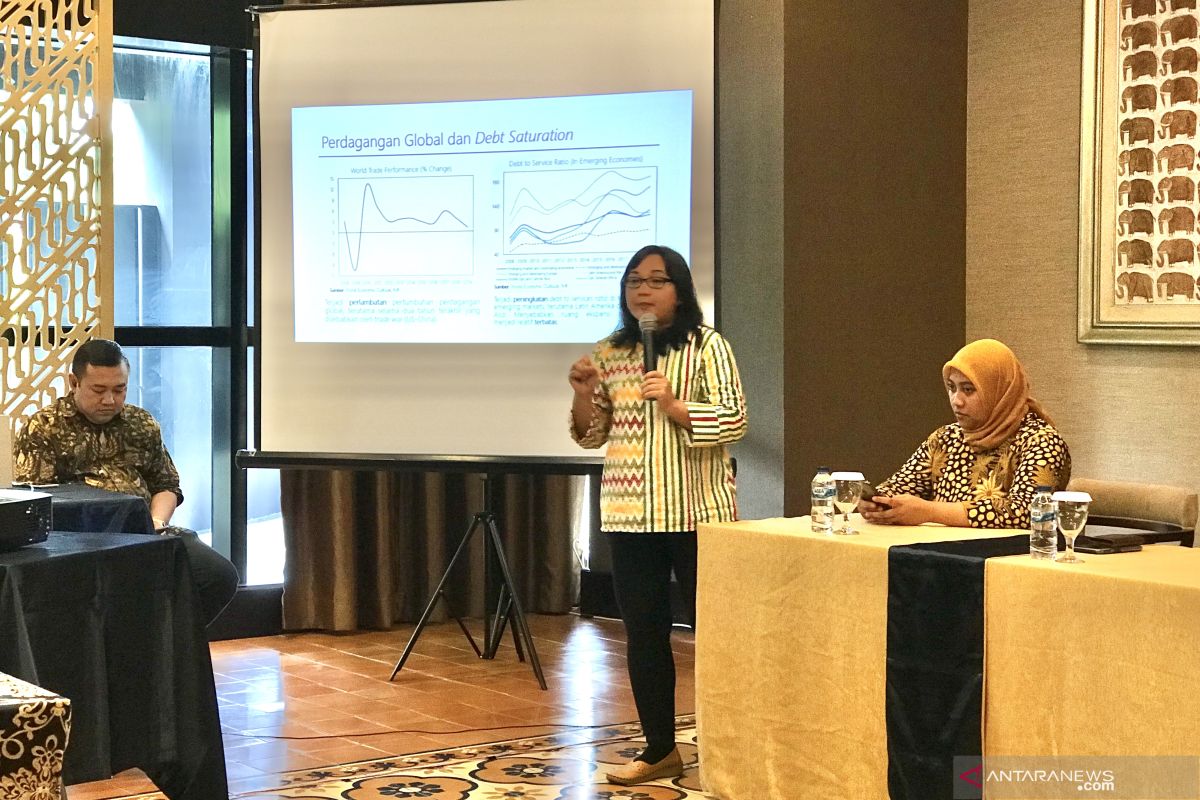"Why it is relatively stable, because the main components that support Indonesia's economic growth are not exports and imports. Because our export-import ratio is only 39.9 percent of the Gross Domestic Product (GDP)," Esther said in a Public Discussion titled End of Year Reflections: Women Economists Watch Out for Global Economic Recession in Jakarta, Friday.
She explained, the main component that sustains Indonesia's economic growth is consumption, which ratio reaches 56 percent of GDP.
Related news: ADB's 2019 economic outlook for Indonesia maintained at 5.1 percent
So, according to Esther, what the government needs to do next year is to keep the consumption sector running well.
"So, if the government wants to be stable in the future, don't disturb consumption because this is the main component," she said.
Economic growth in several countries has decreased, even the United States which is included in the strong category in terms of economic growth is also slowing due to global recession.
Germany even experienced negative growth, although the country only grew 0.4 percent. While China, which normally grows 7 percent, is estimated to only reach 5.5 percent growth until the end of 2019.
Meanwhile, economic growth in Europe, Britain, Japan and India fell sharply in the range of 5 percent.
Under these conditions, even though Indonesia's growth is relatively stable, it is still considered vigilant.
Related news: Indonesia's economic growth projected at 5.14 percent in 2020
Related news: Bappenas reveals strategies to attain economic growth of six percent
Reporter: Sella P, Azis Kurmala
Editor: Gusti Nur Cahya Aryani
Copyright © ANTARA 2019











